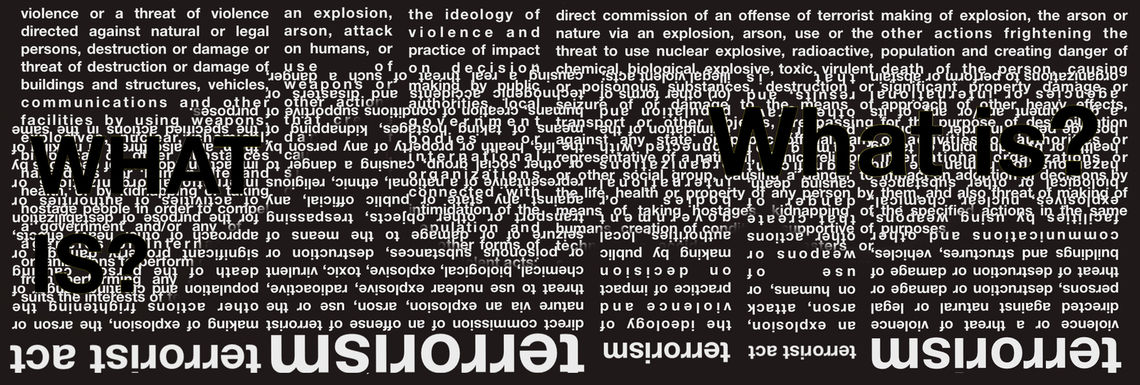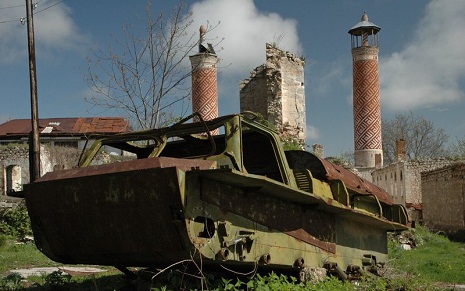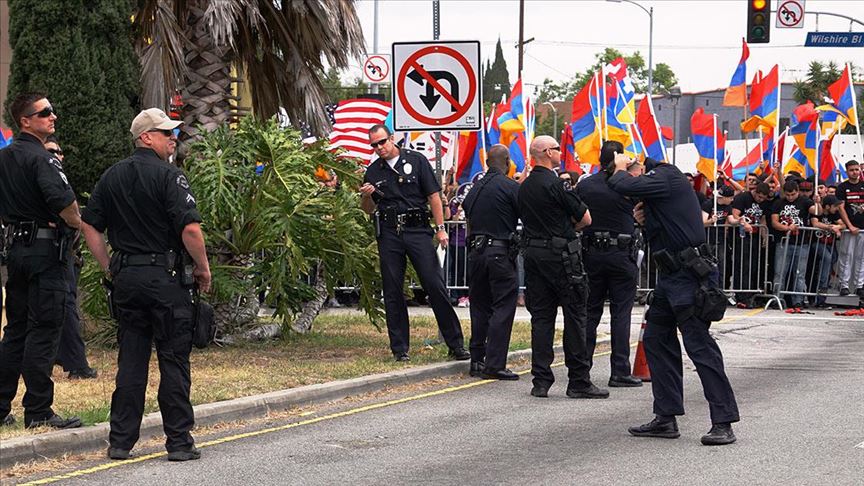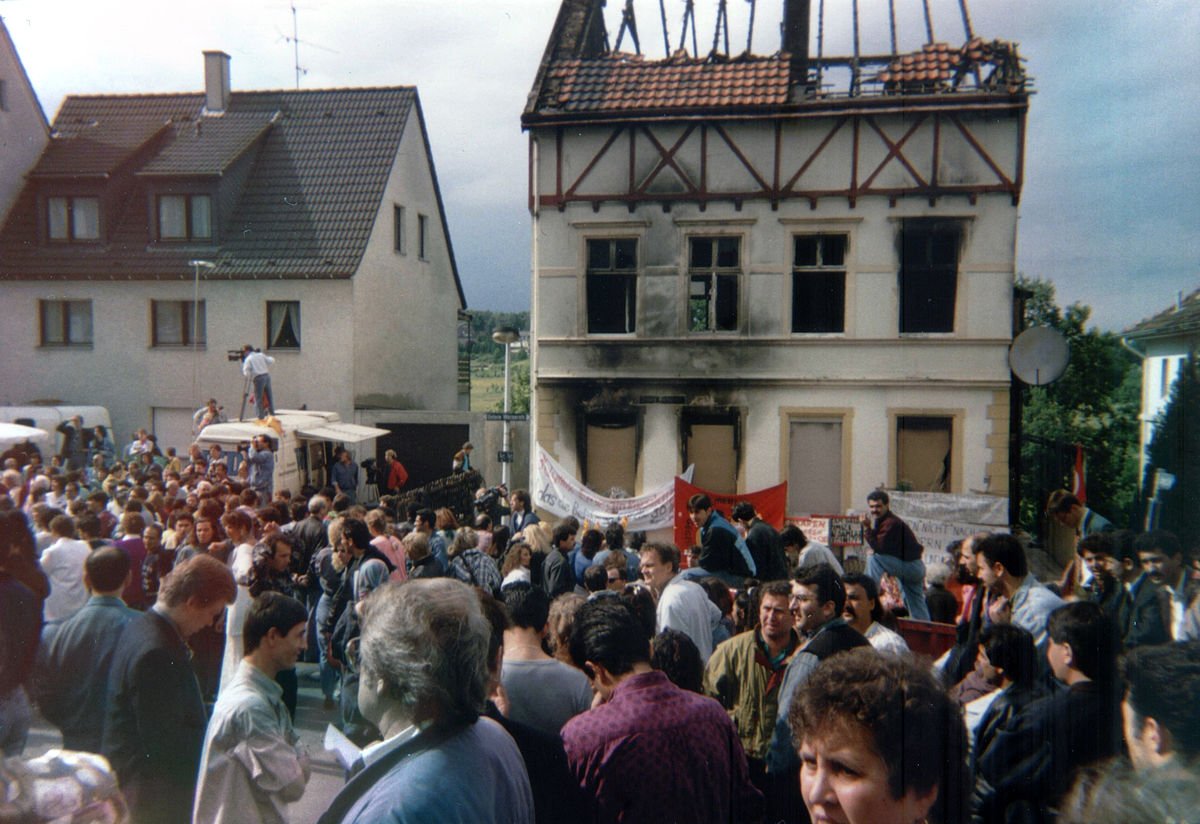
18 November 2019
by Farid Shafiyev and Vasif Huseynov
The international efforts to normalize relations between Armenia and its Turkic neighbours and to settle long-running conflicts face numerous impediments. However, one of these impediments has a serious potential to cause even more troubles in the region if it is not overcome. This impediment is generalized hatred and often distorted collective memory about the past.
Armenia’s resentment against its Turkic neighbors due to the disputes on the events took placed during the World War I and their claims on the territories of Azerbaijan and Turkey has rapidly transformed into massive hatred and bellicose aggression. The leaders of the country have pursued consistent policies to reinforce and disseminate these sentiments as much as possible. The establishment of memorials and monuments of Armenians who demonstrated merciless violence against Turks in the past and who killed Turkish diplomats all around the world can be seen as an instrument towards this end. These statutes not only commemorate these war criminals and terrorists, but also glorify their deeds, send misguided messages about the present and seek to shape ideas and outlooks in a particular way.
Unfortunately, there are not few such controversial historical figures in Armenia’s past whose hazardous legacy is commemorated and propagated by the country’s leaders in a way that sends a dangerous signal to the society amid growing right-wing populist tendencies in official policymaking.
Most prominently, the members of ASALA, an Armenian association that targeted and murdered Turkish diplomats all around the world and, as such, are recognized by many countries (including the United States of America) as a terrorist organization, are honoured as national heroes in the country.
Monte Melkonian, one of the leaders of ASALA, is glorified by Armenians for having killed Turkish diplomats and for playing a leading role in Armenia’s war against Azerbaijan. Since Armenia gained independence in the early 1990s statues have been built in his honour, also his name has ben given to educational institutions, and even a foundation named after him. In the cemetery where he is buried, there is a memorial built in honour of ASALA. In 2014, in a live broadcast, another ASALA memorial was unveiled in the Armenian city of Vanadzor with the participation of the priests of the Armenian Apostolic Church and the national church of Armenia.
Varoujan Karapetyan, another ASALA member and the head of the organization’s French branch, was welcomed in Armenia as a national hero, after having spent nearly 20 years in jail in France, for the fatal bombing attack against Turkish diplomats at Orly Airport in Paris. The eight victims of the attack were not only the Turkish citizens: apart from two Turkish nationals, four French, one American and one Swedish lost their lives in that incident. But this did not keep Armenian politicians and intellectuals from campaigning for his early release and heroizing him at the highest level.
Not only the members of ASALA are commemorated in such vehemence, but also and maybe even more dangerously, the people who collaborated with Nazis and exterminated thousands of people are honoured by Armenians.
Most prominently, Garegin Nzhdeh, a wartime Nazi collaborator from Armenia and founder of a supremacist ideology called Tseghakronism (the combination of two Armenian words for “race” and “religion”) is continued to be glorified, in spite of international condemnation. In 2016, with the attendance of the President, Prime Minister, Speaker and Deputy Speakers of the National Assembly, Armenians unveiled a statute to Garegin Nzhdeh, in the centre of the capital city, Yerevan.
In addition to this, one of the most recent monuments dedicated to a war criminal was erected this year in the Armenian-dominated region of Samtkhe-Javakheti in Georgia. On January 20, the day of which the Azerbaijani people mourn the victims of a massacre committed by Soviet troops in Baku in 1990, Armenia opened a monument of Mikhail Avagyan with a ceremony, who was an Armenian military officer who took part in the extermination of hundreds of people in Khojaly village in Azerbaijan in 1992, the largest massacre committed during the conflict according the Human Rights Watch.
Taking into account ongoing conflicts, the erection of statues of “national heroes” who fall into the category of ‘war criminals” by international standards, undermines the efforts promoted by the OSCE Minsk Group co-chairs “to prepare the populations for peace”, an initiative which deals with the resolution of the Armenian-Azerbaijani conflict and, in general, the international efforts for promoting reconciliation in the region. On the other hand, and more dangerously, these types of monuments justify and legitimize terrorist tactics in the pursuit of alleged national causes and encourage the next generation to follow suit.
Ostensibly, the memorials and statues to terrorists and Nazi collaborators do not naturally revive the past; on the contrary, they honour a specific vision of the attitude of society toward the past and shape the collective memory in an unproductive way.
The removal of these memorials from Armenia, following the example of the removal of statutes to questionable historical figures around the world, is necessary to give due respect to thousands of victims. It would also be a good starting point for reconciliation between Armenia and its neighbours, making an important contribution to the settlement of the violent conflicts in the region.
About the authors:
Dr. Farid Shafiyev is Chairman of the Baku-based Center of Analysis of International Relations (AIR Center) and Adjunct Lecturer at ADA University, Azerbaijan.
Dr. Vasif Huseynov is a senior research fellow at the AIR Center and Adjunct Lecturer at Khazar University, Azerbaijan.
© 2009-2025 Avrasya İncelemeleri Merkezi (AVİM) Tüm Hakları Saklıdır
Henüz Yorum Yapılmamış.
-
KIRIM TÜRKLERİ VE RUSYA
Prof. Dr. Alaeddin YALÇINKAYA 16.03.2014 -
 "OUR WHOLE POLITICAL AND INTELLECTUAL FIELD IS STEEPED IN MYTHS AND DOGMAS" - MEDIA.AM - 07.12.2020
"OUR WHOLE POLITICAL AND INTELLECTUAL FIELD IS STEEPED IN MYTHS AND DOGMAS" - MEDIA.AM - 07.12.2020
Nune HAKHVERDYAN 05.01.2021 -
 KARABAĞ’DAKİ ULUSLARARASI HUKUK İHLALLERİ (Çeviri)
KARABAĞ’DAKİ ULUSLARARASI HUKUK İHLALLERİ (Çeviri)
Turgut Kerem TUNCEL 22.10.2016 -
 DİASPORA ERMENİLERİ, 1915 İDDİALARI KONUSUNDA DAHA RADİKAL - HABERTÜRK - 25.04.2020
DİASPORA ERMENİLERİ, 1915 İDDİALARI KONUSUNDA DAHA RADİKAL - HABERTÜRK - 25.04.2020
Ferudun ATA-Mehmet Oğuzhan TULUN 27.04.2020 -
 SOLİNGEN’İ ANMAK: AŞIRI YABANCI DÜŞMANLIĞININ BATI AVRUPA’DA İNATÇI YÜKSELİŞİ - HÜRRİYET DAILY NEWS - 19.05.2018
SOLİNGEN’İ ANMAK: AŞIRI YABANCI DÜŞMANLIĞININ BATI AVRUPA’DA İNATÇI YÜKSELİŞİ - HÜRRİYET DAILY NEWS - 19.05.2018
Teoman Ertuğrul TULUN 27.05.2018


